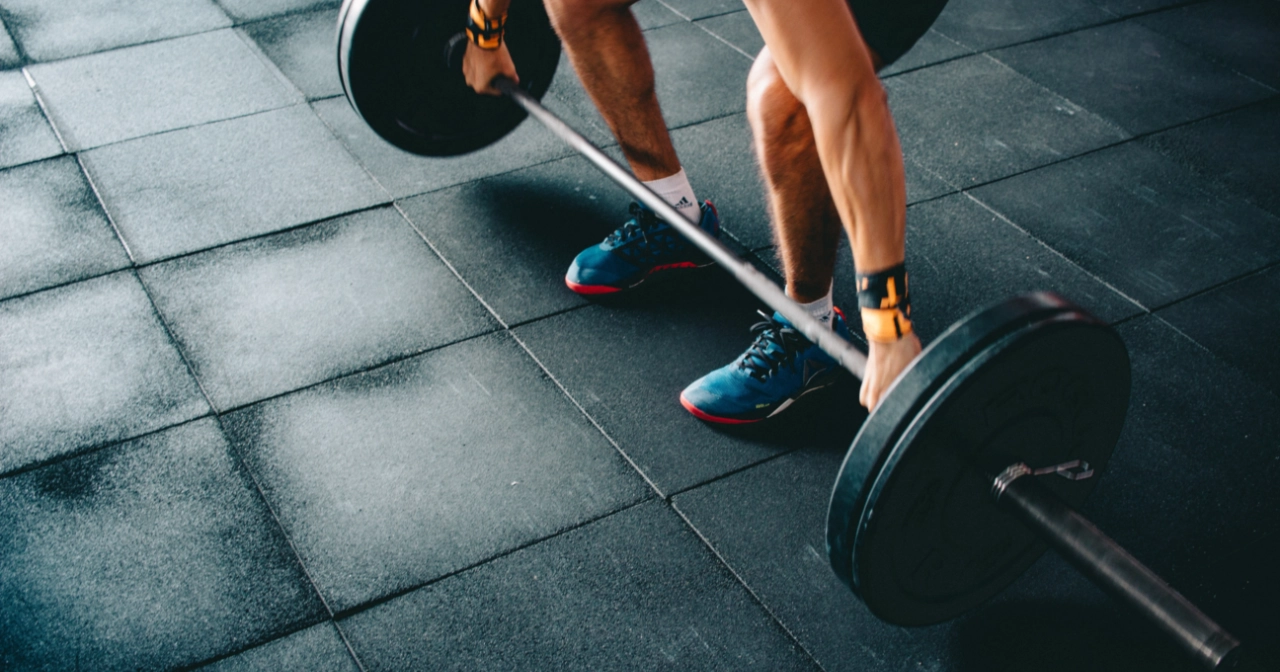Listen on: Apple Podcasts | Spotify
Should my teenager take a pre-workout supplement?
That’s one of the most common questions I get asked from parents about nutrition and exercise.
While I try to dissuade teens from using pre-workout supplements, I do so only after some explanation.
I was a teen once upon a time, and we raised two of our own. I know that it’s hard to change a teenager’s mind, especially when he or she sees friends doing something you think they shouldn’t.
It also doesn’t help much to say, “That’s not good for you.” They usually just do it anyway. But if you can help them get what they want, and do it a different way, you both win.
That’s where this blog post comes in.

Feel Better Fast. Guaranteed.
Energy+, EDGE, and MentaBiotics make up the Happy Juice supplement stack, with ingredients clinically proven to:
- decrease anxiousness scores by 55%
- decrease irritability scores by 60%
- decrease fatigue by 64%
- decrease anger 54%
- decrease tension by 45%
- decrease confusion by 43%
- decrease overall distress by 49%
- increase good bacteria by 70%
- decrease negative mood by 105%
- increase positive mood by 211%
Why would a teen use or need a pre-workout supplement?
Teens make up a significant portion of the energy drink market, so it isn’t surprising that they’re also lured into the promises of pre-workout drink advertising as well.
From my experience, most teens buy pre-workouts because they hope to:
- Lift more weight, thereby impressing their friends
- Build muscle faster
- Get more energy because they don’t get enough sleep
You might add a fourth reason: “because their friends are doing it.”
In reality, you don’t need a pre-workout supplement to accomplish any of these goals.
In fact, most teens would be better off skipping the pre-workout and focusing on some of the alternatives I cover later.
Mega-Dosing Caffeine
Of all of the ingredients in popular pre-workouts, the excessive caffeine consumption poses the greatest risk for a teen. Don’t take that sentence out of context, though. I’m not saying caffeine is bad. The Lord knows I’m a big advocate of black coffee.
But the mega-doses of caffeine in many pre-workouts is different. A single serving often contains 300+ milligrams, the equivalent of 3-5 cups of brewed coffee.
First, such a large amount, especially if it’s used for an after-school workout, can significantly disrupt sleep quality and quantity. It could be midnight before most of that caffeine wears off.
Going to sleep so late could suppress growth hormone and testosterone while raising cortisol, which all limit muscle and strength gains.
It also create a cycle of dependence: The caffeine keeps them up too late, leaving them tired the next day. They’re tired which makes them more likely to use the pre-workout again.
Second , isolated, or anhydrous, caffeine can cause a major crash hours later: That’s different from the caffeine in coffee. Coffee contains dozens of other compounds which may lessen the caffeine kick, but also helps you avoid the subsequent crash.
Third, many people develop a tolerance. The boost of energy they get the first few days they use it eventually subsides. To get that same amount of energy again, they’ll need to consume even more.
With all that said, caffeine does improve athletic performance when used on occasion. It:
- Increases time to fatigue
- Increases strength, power, and speed
- Increases mental acuity and reflexes
- Decreases pain
- Increases fat metabolism
- Improves muscular and cardiovascular endurance
To reiterate, caffeine is not bad. It can be good. But it can lead to unwanted side effects when used in excess or taken at the wrong time of day.
Other Ingredients
Pre-workout supplements often contain numerous other stimulating ingredients, including ginseng, green tea, huperzine, B12, tyrosine, velvet bean, and others.
Every parent knows how finicky a teenager’s brain is, so I wouldn’t recommend dumping all of these ingredients into his or her body at once without trying them out individually. It isn’t worth the risk.
For adults, it might be alright to tinker with something like this, but for a teen at peak growth and development, it isn’t worth the risk.
Pre-workout ingredients that work
The following, at efficacious doses used consistently for months do indeed enhance muscle and strength gains as part of a good strength training program, a high-protein diet, sound nutrition, and optimal sleep.
That said, they’re not really “pre-workout” ingredients even though they’re often included in pre-workout formulas. They can be taken with other supplements during the day.
Still want something to get an edge? Try inhaling some essential oils.
Inhaling certain essential oils has a significant and almost immediate effect on mental focus, alertness, reflexes, and other markers of exercise performance.
Peppermint oil has been the most studied for performance enhancement, but other mint oils would likely have similar effects. In addition, clove, cinnamon, and black pepper also act as mild stimulants without causing a crash like caffeine does.
My friend, Charles Poliquin, arguably one of the best strength coaches of all time, often had his athletes use Valor, a blend of black spruce, blue tansy, camphor wood, geranium, and frankincense.
The last time we spoke, we planned to create an essential oils curriculum for strength and conditioning coaches. Unfortunately, he passed away a week and a half later. He had his athletes inhale right from the bottle or put a couple of drops in the palms of their hands and inhale just before doing a set.
The point is, essential oils can be potent ergogenic aids without causing any crashes or side effects.
What is most important for muscle growth and strength gains?
The bodies of most teens, especially males, are already primed to build strength and muscle mass. It’s like they’re on steroids without being on steroids.
But just as steroids by themselves do little to build muscle and strength, so it is with being a teenager.
They need to consistently do three things and they’ll usually gain strength, muscle mass, and athletic performance without needing much else.
- Sleep nine to ten hours per night: Yes, nine to ten hours. Sadly, many teens don’t come close to that amount of sleep. If they did, they’d not only be more fit and less fat, but they’d also learn much easier.
- High-protein diet: Again, a high-protein diet not only helps teens build muscle and stay lean, it also helps them think more clearly than a typical carb-heavy, protein-deficient Standard American Diet. Contrary to adults, who do better by eating two to three meals and no snacks, teens benefit from more frequent meals and snacks, each containing 20-40 grams of protein.
- Professional, periodized training plan: The first two steps above ensure teens recover from their training sessions. A professional, periodized training plan helps a teen methodically push themselves harder each week and month, which stimulates muscle and strength gains. A single, intense training session does little to impact muscle and strength. It’s the progressive increase in intensity over time that leads to a strong, fit, athletic body.
You might add a fourth, which would be to take a high-quality multivitamin. It’s an easy way to optimize their nutrition and help strengthen their immune systems. But to keep it simple, addressing the three points above will set them far apart from the average teen.
Photo by Victor Freitas on Unsplash



